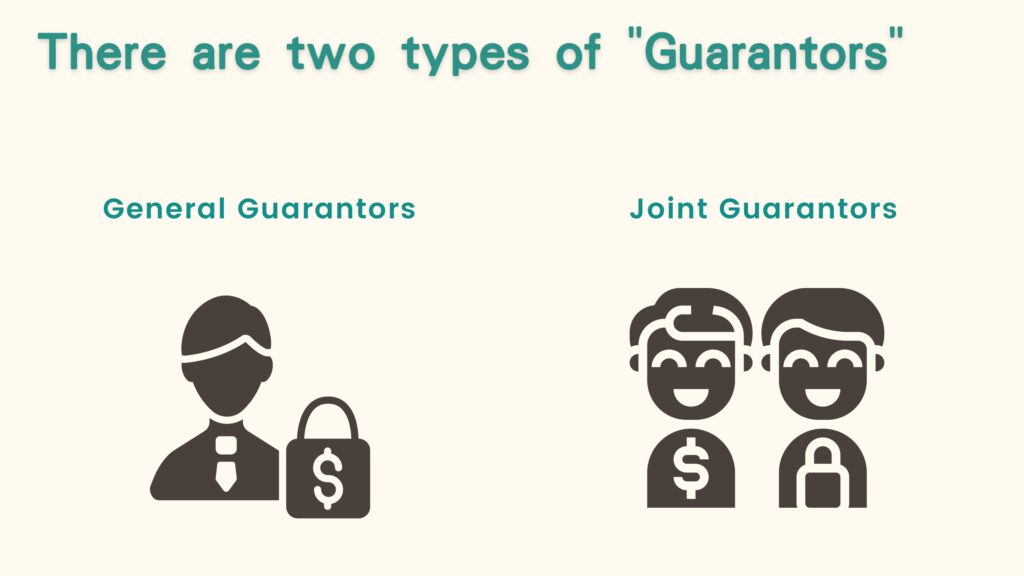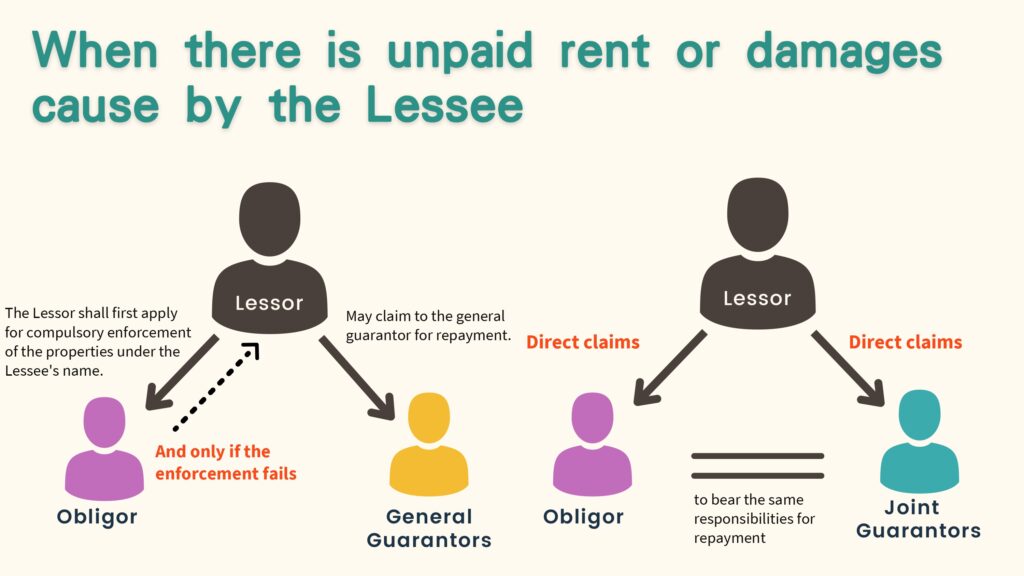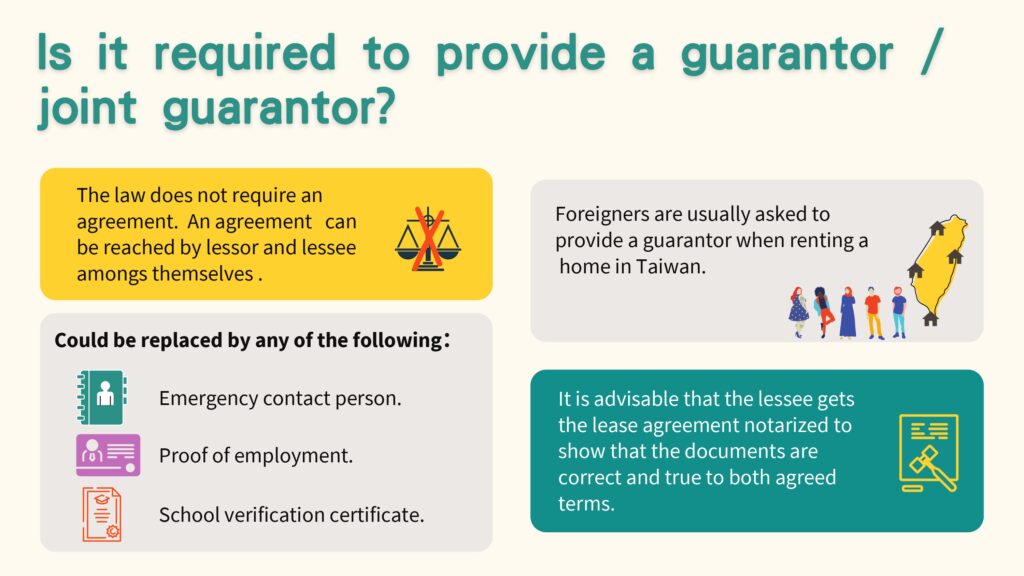This article explains the concept of a “Guarantor,” a role you may be asked to fill when renting in Taiwan.
What is a “Guarantor”?
A guarantor is a person who agrees to be responsible for the lessee’s obligations (like unpaid rent or damages) if the lessee fails to fulfill them.
Types of Guarantors
There are two main types of guarantors:
- General Guarantors
- Joint Guarantors

Differences in Responsibility
- General Guarantors: When the lessee defaults, the Lessor must first apply for compulsory enforcement against the Lessee’s properties. Only if that enforcement fails can the Lessor then make a claim to the general guarantor for repayment.
- Joint Guarantors: A joint guarantor bears the same responsibilities for repayment as the lessee (the obligor). The Lessor can make direct claims to the joint guarantor for any unpaid rent or damages without first going after the lessee.

Is a Guarantor Required?
- Legal Status: The law does not require a guarantor; it is a matter of agreement between the lessor and lessee.
- Common Practice: Foreigners are usually asked to provide a guarantor when renting a home in Taiwan.
- Alternatives: If you cannot provide a guarantor, you may be able to substitute an emergency contact person, proof of employment, or a school verification certificate.
- Recommendation: It is advisable that the lessee gets the lease agreement notarized to show that the documents are correct and true to the agreed terms.

※The content and image are adapted from the Ministry of the Interior‘s Guide.





